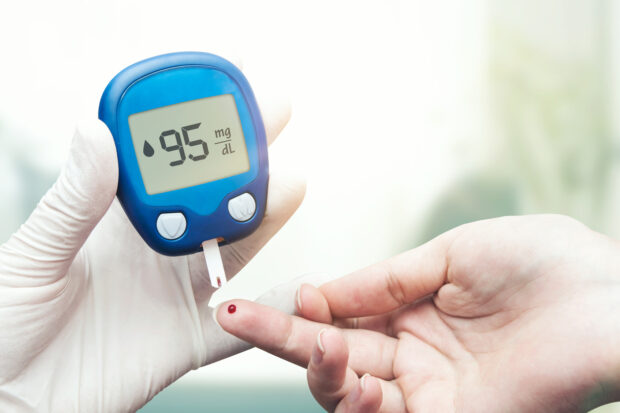Health screenings are pivotal in preventing diseases and catching potential health issues early.
As we age, our bodies undergo changes that require closer monitoring through targeted medical tests and check-ups.
For individuals over 45, specific screenings become vital in maintaining long-term well-being.
Understanding these requirements can lead to timely interventions, enhancing both quality and longevity of life.
General Wellness Visits

Annual wellness visits act as a cornerstone for comprehensive healthcare. These routine appointments provide an opportunity to evaluate overall physical and mental health, track progress in managing chronic conditions, and adjust lifestyle recommendations as needed. Blood pressure, weight, and other baseline metrics are typically monitored to detect any deviations early.
Mental health evaluations are increasingly being integrated into general wellness visits. Stress, anxiety, and depression are common but often overlooked aspects of health. Regular counseling sessions during these visits can offer guidance on managing lifestyle factors like diet, exercise, and sleep hygiene.
Additionally, vaccination updates for influenza, pneumonia, and shingles ensure protection against preventable illnesses, particularly for those with weaker immune systems.
These check-ups also serve as a platform for discussing family health history and tailoring future screenings to address individual risks. Through consistent attendance, patients foster a proactive approach to health management, ensuring early detection and intervention.
Cancer Screenings
Cancer screenings become increasingly important after 45 as the risk of various cancers rises with age. Early detection is vital, as it can significantly improve treatment outcomes and save lives. Below are key screenings to consider:
Colorectal Cancer

Screening for colorectal cancer typically begins at 45. A colonoscopy every ten years is the gold standard, as it can detect and remove precancerous polyps. Alternative tests, such as stool-based screenings, may be suitable for some individuals.
Early and more frequent testing is recommended for those with a family history or other risk factors. For individuals considering their options, it’s worth exploring the colonoscopy cost in Singapore, especially if affordability and quality are priorities.
Lung Cancer
Individuals aged 50-80 with a significant smoking history should undergo annual low-dose CT scans. These scans are effective in detecting lung cancer at an early stage, where treatments have the highest chance of success. Smoking cessation programs combined with screenings can further reduce risk.
Breast Cancer (Women)
Women aged 40-50 should schedule mammograms every 1-2 years, depending on their risk profile. Those with a strong family history of breast cancer or genetic predispositions may require earlier or more frequent screenings. Consulting a specialist can help determine the optimal plan.
Prostate Cancer (Men)

Men around the age of 50 should discuss PSA screening with their healthcare providers. High-risk groups, including African American men and individuals with a family history of prostate cancer, might need to begin discussions and evaluations earlier.
These screenings are instrumental in reducing cancer-related mortality, offering a proactive pathway for timely interventions and improved health outcomes.
Cardiovascular Health
Heart health takes center stage as people age, particularly after 45. Monitoring cardiovascular health involves regular screenings for blood pressure and cholesterol levels, two key indicators of heart disease risk.
Blood Pressure Screening
High blood pressure, or hypertension, often presents without symptoms but can lead to severe complications like strokes or heart attacks. Annual screenings are essential, with more frequent checks recommended for individuals managing conditions like diabetes, obesity, or a family history of hypertension.
Cholesterol Screening
Elevated cholesterol levels contribute significantly to atherosclerosis and other heart conditions. For those without risk factors, cholesterol should be tested every five years. However, individuals with existing cardiovascular concerns or metabolic syndromes may require annual or biannual screenings.
By integrating these tests into regular health routines, individuals can address issues like high blood pressure or abnormal cholesterol levels before they escalate into life-threatening conditions. Combined with lifestyle adjustments, these screenings form a critical defense against heart disease.
Diabetes Screening

Diabetes screening becomes increasingly critical as individuals age.
Starting at 45, it is essential to monitor blood sugar levels since insulin resistance and glucose metabolism can naturally decline over time, increasing the risk of diabetes.
For those without major risk factors, a blood glucose test every three years is sufficient. However, individuals with higher risk profiles should prioritize annual screenings. Elevated risk factors include:
- Family history of diabetes
- Obesity or being overweight
- Sedentary lifestyle
- High blood pressure (hypertension)
- Abnormal cholesterol levels
Several diagnostic tests provide valuable insights into blood sugar management, such as:
- Fasting Plasma Glucose Test: Measures blood sugar after an overnight fast.
- HbA1c Test: Reflects average blood sugar levels over the past three months.
- Oral Glucose Tolerance Test: Evaluates the body’s ability to process sugar.
The benefits of early detection cannot be overstated. Identifying abnormal blood sugar levels early allows for effective interventions, including:
- Dietary adjustments: Incorporating a balanced, low-glycemic diet.
- Physical activity: Regular exercise to improve glucose metabolism.
- Medical treatment: Prescribed medications or insulin if necessary.
Proactively addressing these factors through regular screenings and lifestyle changes helps prevent the development of Type 2 diabetes and supports sustained metabolic health.
Bone and Joint Health
As people age, bone density and joint health become prominent concerns, making screenings vital for preventing conditions like osteoporosis and arthritis.
Osteoporosis Screening
Bone density tests, such as DXA scans, are recommended for women aged 65 and older or younger individuals with risk factors like menopause or family history. Men with similar risks may also benefit from early screenings starting at 50.
Arthritis and Joint Health
Joint pain, stiffness, or inflammation often indicates underlying arthritis. Providers can assess symptoms, conduct imaging studies, and recommend treatments to manage or slow disease progression.
Eye and Dental Health

Eye and dental health require consistent attention after 45, as age-related changes increase vulnerability to various conditions.
Eye Exams
Eye health deteriorates with age, necessitating exams every 2-4 years for those aged 40-54 and every 1-3 years after 55. These exams screen for glaucoma, cataracts, and macular degeneration—conditions that can lead to vision loss if untreated.
Dental Exams
Regular dental check-ups once or twice a year help identify early signs of gum disease, cavities, and oral cancer. These visits are also an opportunity to maintain oral hygiene and receive professional cleaning.
Proactive care ensures that small issues do not escalate into significant health concerns.
Skin Health

Skin cancer remains one of the most common cancers, making annual full-body skin exams vital for early detection. These exams are especially crucial for individuals with fair skin, a history of sunburns, or prolonged sun exposure.
Self-examinations play an equally important role. Observing moles for asymmetry, irregular borders, uneven coloration, or changes in size can alert individuals to potential issues. Early consultation with a dermatologist ensures timely interventions, preserving skin health and preventing serious outcomes.
The Bottom Line
Health screenings after 45 are essential for maintaining well-being and preventing severe health complications. Personalized care plans, informed by lifestyle, family history, and risk factors, empower individuals to take charge of their health. Regular monitoring and open communication with healthcare providers create a robust framework for long-term vitality.
 Jewel Beat
Jewel Beat

